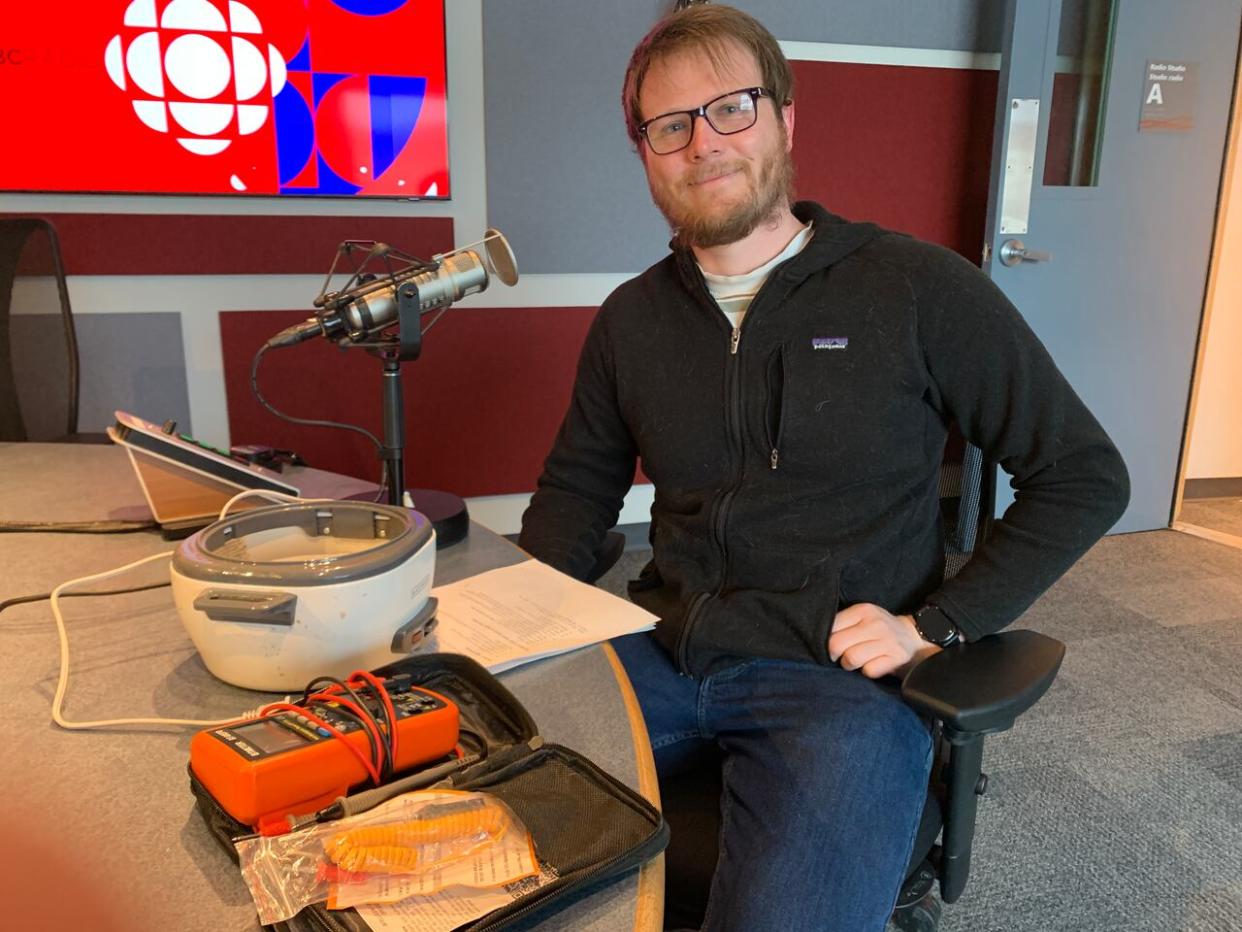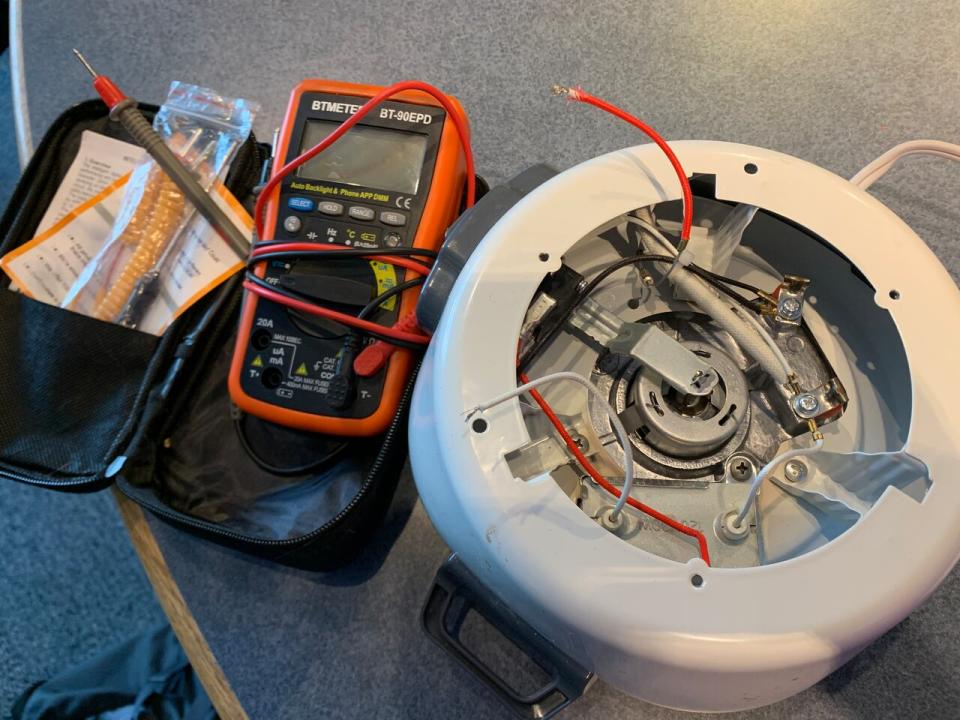How a St. John's group wants to help you stop replacing, and start repairing, your appliances


Daniel O'Keeffe, a volunteer with the St. John's Tool Library, was able to save his broken rice cooker from the landfill with a small repair. (Heather Barrett/CBC)
The St. John's Tool Library is helping people save some money - and some appliances - by helping to repair broken household amenities.
Daniel O'Keeffe, a volunteer at the tool library, says he was able to fix his busted rice cooker with a little know-how and persistence, allowing him to repair the kitchen gadget instead of replacing it.
"It gave up on me after a couple of years, so I took it apart to have a look at it and to try and go through the steps to diagnose and fix it," he said.
It's part of what's become known as the "right to repair," a movement to make it easier and cheaper to repair household items in the interest of sustainability. The federal government has signaled that right-to-repair legislation could be on the way soon.
For O'Keeffe, he said the first step was to make sure the problem was with the rice cooker — and not just something he was doing wrong.
He said the switches on the rice cooker weren't working, so he took the bottom off of it to expose the internal components and dig a little deeper. Even if you don't know exactly how an appliance works, O'Keeffe said, you can methodically go through, part by part, to understand it.

O'Keeffe says a multimeter is an important tool for repairing small appliances. (Heather Barrett/CBC)
He said a multimeter is one of the most useful tools with trying to repair appliances, which can measure electrical properties to check that parts of the circuit are working the way they should.
"For example, you can check switches. Usually with a switch, when you switch it on you want it to conduct, to, kind of, make a connection and when you turn it off, it shouldn't."
With his trusty multimeter, O'Keeffe was able to identify a thermal cut-off fuse as the source of the problem.
"That had basically triggered and stopped the whole rice cooker from working…. This is a component that costs a number of cents, basically," he said.
"For many broken appliances and things like that, it really is something as simple and small as that."
LISTEN | Hear Daniel O'Keeffe explain how you might be able to fix your appliances:
But the more complex the appliance is, O'Keeffe said, the less likely you'll be able to fix it, and it's become common for appliances to use more complicated digital parts.
"Usually the biggest barrier to repairing something is not so much whether you can do it or not, but whether it makes financial and time sense to do so," he said. "If it's a particularly complex, expensive part that's broken, you might run into some issues there, even if it's technically possible to get it working again."
O'Keeffe is one of the people leading a small appliance repair workshop at the A.C. Hunter Library in St. John's on Saturday, with tools, experience and expertise to get those faulty items working again.
And along with saving a few dollars and helping the environment, O'Keeffe said there's an extra satisfaction in fixing something that was broken.
Download our free CBC News app to sign up for push alerts for CBC Newfoundland and Labrador. Click here to visit our landing page.


